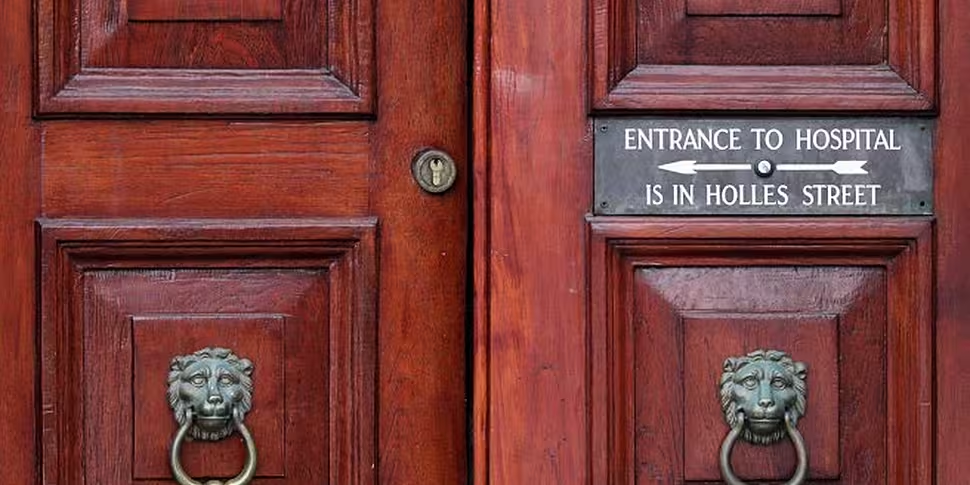The dispute over the ownership of Ireland’s new National Maternity Hospital has dominated both politics and the airwaves over the past week.
The revelation that sole ownership of the new €300m facility will pass to religious group, the Sisters of Charity upon its completion has led to real concern about the potential for religious influence over the ethos and clinical independence of the hospital.
The group owns the land the new facility if set to be built on – and have made it available to the government free of charge.
Health Minister Simon Harris has faced calls for the state to step in and issue a compulsory purchase order on the proposed site – thus side-stepping the ownership issue.
Dublin’s Lord Mayor Brendan Carr – a member of the NMH board – has been particularly vocal in his opposition to the decision, telling Newstalk Breakfast on Thursday that he cannot support the current arrangement and insisting that the lands should have been acquired by way of compulsory purchase order (CPO).

Dublin’s Lord Mayor Brendan Carr following a meeting of the Holles Street board, 26-04-2017. Image: Eamonn Farrell/RollingNews
Former Environment Minister Alan Kelly also called for the state to step in with a CPO – while the idea has been floated by the former master of the NMH, Dr Peter Boylan.
Minister Harris has ruled out the idea calling it “not the ideal solution here in any way, manner or means.”
Compulsory Purchase Order
Planning law expert Brendan Slattery of Barry Doyle & Co. Solicitors told Newstalk that he “see a lot of sense” in the minister’s stand-point.
“Where there is a plot of land made available to the state on a site which is, as I understand it, a model for co-location – that is a gift horse that they would be daft to look at in the mouth,” he said.
“The comptroller and auditor general would quite rightly give them a very difficult time in years to come if they had failed to take up that opportunity.”
He said the state would have faced three main obstacles had it gone down the compulsory purchase route.
Necessary and proportionate
Under the Constitution, the government has the right to CPO property where it can prove the land is urgently required for the common good of society – a difficult argument to make where the use of the land is already available free of charge.
“The first difficulty you find with any compulsory purchase property is the need to establish that acquiring the lands is necessary and proportionate,” said Mr Slattery.
“Can we really say it would be necessary to use the draconian powers of compulsory purchase to take lands from the Elm Park Golf Club or RTÉ Montrose - or any other site - in circumstances where there is another offer on the table?”
Legal process
The Department of Health is under real pressure to get the new facility up and running as quickly as possible - with the master of the NMH, Dr Rhona Mahony warning that the current facilities have not been fit for purpose for a long time.
Mr Slattery said it can often take, “longer than a year and in many cases upwards of two, three years” to get a CPO approved – before any challenge can even begin in the courts.
“While you can accelerate the courts process through the commercial list, if the case goes to the to the Court of Appeals and the Supreme Court, it is not difficult to add another two or three years to that,” he said.
Compensation
He said it is not uncommon for it to take more than ten years – after the order is approved – to agree on the level of compensation owed to the owner of a property.
He said compensation disputes don’t necessarily stop the state getting its hands on the land - but it could certainly slow down the process.
“The price is the open market value of the lands and given this is Dublin 4 - this is an area where there is a ready market for lands with huge potential for development and demand for housing – there would doubtless be a substantial cost to be paid by way of compensation,” he said.
“We may not know how much would be paid at the end of that process until upwards of ten years later - which could be very unsatisfactory in circumstance where you are trying to carry out the relevant cost benefit analysis.”
Ongoing dispute
While Minister Harris has insisted he is “as determined as ever” to get the project over the line, the dispute is likely to rumble on over the coming weeks.

The Minister for Health Simon Harris arrives at government buildings, 26-04-2017. Image: RollingNews
Yesterday a group representing survivors of the Magdalene Laundries called for the minister’s resignation – accusing him of being totally out of touch with the wishes of the people.
The group’s chairman said the Sisters of Charity’s ethical views and code of practice is “in complete contrast to how the majority of women might feel in the context of receiving medical care.”
"If that is not a reason for us to be really concerned then the Minister doesn't understand the role or conflict of interest."
With almost 100,000 people having signed an online petition against the agreement, the ‘Parents for Choice’ group have organised a protest march in Dublin for Saturday May 7th.
The ‘We own our Hospitals’ demonstration will begin at the Garden or Remembrance in Dublin at 2pm and finish at Leinster House.









